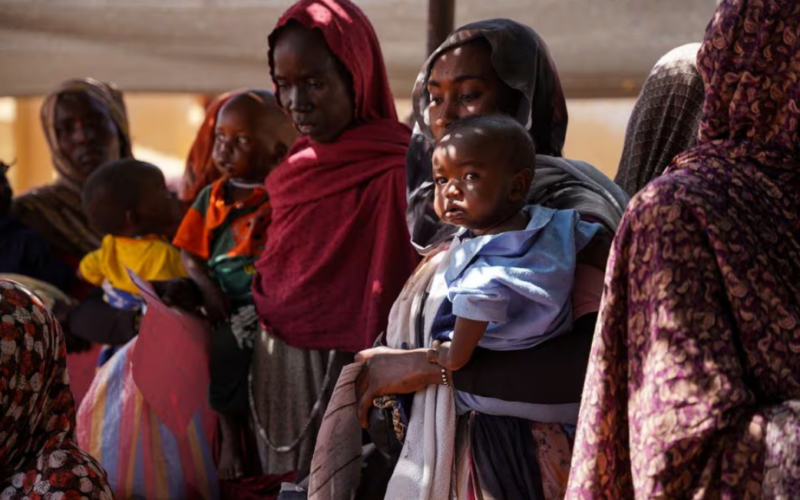The harrowing accounts of individuals in Sudan paint a stark picture of the widespread hunger gripping parts of the country, particularly those severely impacted by the conflict that erupted last April. Stories range from a mother sacrificing her own meals to ensure her children are fed to elderly individuals surviving on meager rations, reflecting the dire circumstances faced by many.
Reports collected by Reuters shed light on the alarming extent of hunger in regions hardest hit by the ongoing war, including areas in the capital Khartoum and the western region of Darfur. According to the Integrated Food Security Phase Classification, a globally recognized index, nearly five million Sudanese are now confronting emergency levels of hunger, a staggering increase from the previous year.
In Khartoum, hundreds of thousands of residents grapple with daily food shortages as communal kitchens, which many rely on, face dwindling supplies amidst a recent communications blackout across much of the country. Meanwhile, in Darfur, some communities have been cut off from aid since the conflict escalated almost a year ago, exacerbating the food crisis.
Aid agencies, unable to reach many areas due to the conflict, warn of further deterioration in the coming months as Sudan approaches its lean season, when food scarcity intensifies with farmers engaged in planting.
Jan Egeland, head of the Norwegian Refugee Council, expressed grave concern, likening the situation to a potential “biblical style famine.” His remarks underscore the urgency of addressing the crisis before it worsens.
The war has not only disrupted food supplies but also inflicted damage on essential infrastructure, leaving many without access to electricity and clean water. Reports of cholera outbreaks further compound the humanitarian crisis, with thousands affected across the country.
Efforts to alleviate hunger, such as setting up communal kitchens, have been hampered by the conflict. Volunteers, risking their lives, have struggled to provide food to besieged communities, facing deadly attacks in the process.
While recent military advancements have led to some relief in certain areas, the broader conflict between the Sudanese army and paramilitary forces continues to inflict suffering on civilians.
The roots of the conflict trace back to tensions surrounding Sudan’s transition towards civilian rule and elections, which escalated into armed confrontation between the military and paramilitary groups.
The situation in Darfur, in particular, has been marked by ethnic violence, with reports of targeted attacks against specific communities. The conflict has already claimed thousands of lives and displaced millions, making it one of the world’s largest displacement crises.
As the crisis deepens, international aid remains limited, hindered by logistical challenges and bureaucratic obstacles. Calls for urgent action to avert a humanitarian catastrophe grow louder, with millions of lives at stake.
Without swift intervention and increased access to aid, Sudan faces the grim prospect of widespread famine, further exacerbating the suffering of its already vulnerable population.








